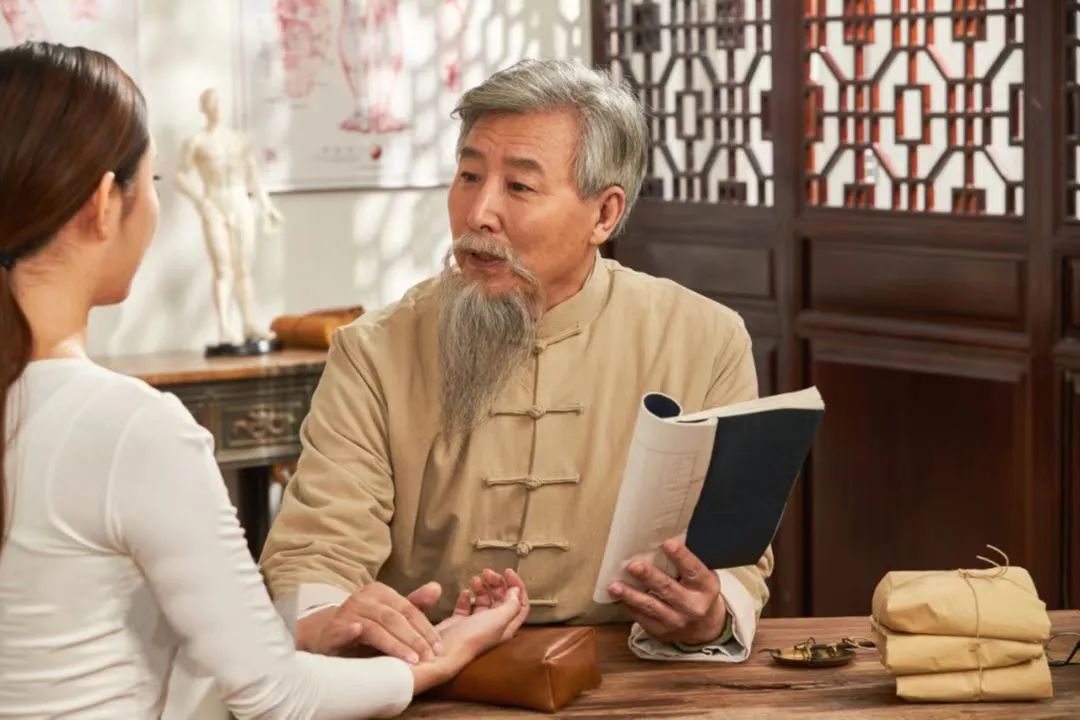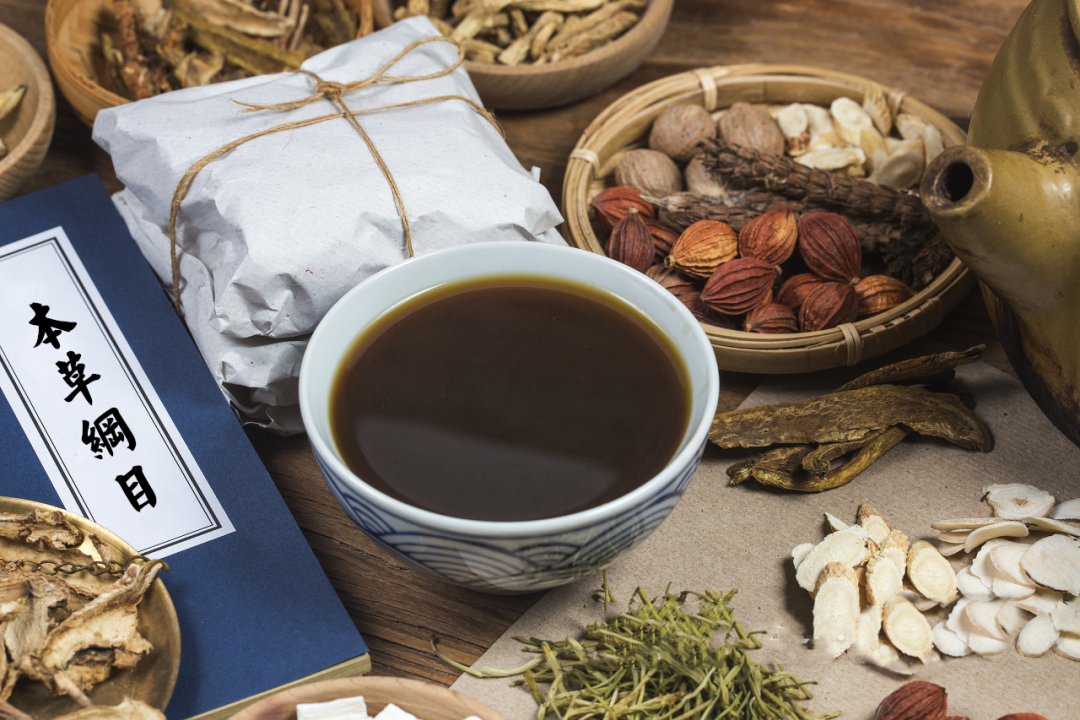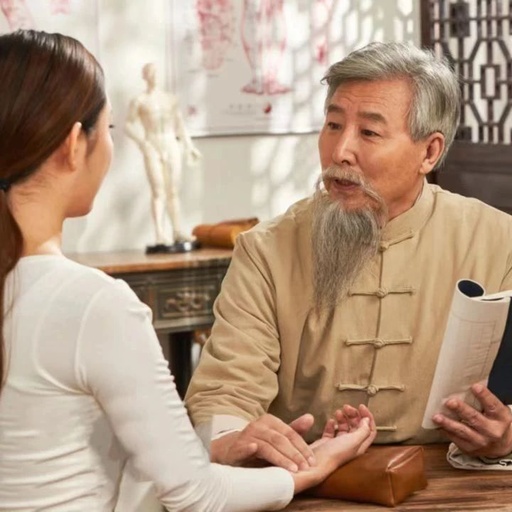


Did you know? Traditional Chinese Medicine (TCM) emphasizes the importance of syndrome differentiation and treatment. If one does not clearly identify their type of deficiency and blindly supplements, it can lead to symptoms such as heat excess, constipation, and in severe cases, harm to the body’s health!
Today, I will discuss the issues of “deficiency and supplementation,” helping you identify your type of deficiency and how to supplement correctly! Let’s get started!
1. Deficiency Precedes Disease

It is essential to understand that any illness arises from a state of deficiency before it manifests as disease.
In simple terms, “deficiency” indicates insufficient Zheng Qi (正气, vital energy) in the body.
As the saying goes, “When Zheng Qi is strong, evil cannot invade.” Only when the body’s Zheng Qi is robust can it defend against external pathogens, preventing the onset of disease. Otherwise, in the early stages of deficiency, one may experience fatigue, lack of energy, low mood, dizziness, poor appetite, constipation or diarrhea, insomnia with vivid dreams, etc. If deficiency progresses to a more severe stage, various diseases will arise.
Moreover, the troublesome aspect of deficiency is that it may not immediately impact our health significantly, but it can linger and develop into chronic conditions.
2. Identifying Your Type of Deficiency

In TCM, it is believed that “what is within will manifest externally.” The external appearance reflects internal conditions. Only when Qi and blood are harmonized, and Yin and Yang are balanced can one maintain good health. Conversely, if not, one may not only fall ill but also appear aged. Deficiency particularly affects women more significantly.
TCM categorizes deficiency into four types: Qi deficiency (气虚), Blood deficiency (血虚), Yin deficiency (阴虚), and Yang deficiency (阳虚).
1. Qi Deficiency: Weakness
Qi deficiency is akin to insufficient fuel for the body, leading to a lack of energy.
Qi comes from three sources: congenital essence (精气, jingqi) from the kidneys, postnatal essence from food and drink (水谷之气, shui gu zhi qi) from the spleen and stomach, and air from breathing (肺, fei). Therefore, Qi deficiency generally includes three aspects: Kidney deficiency (肾虚), Spleen deficiency (脾虚), and Lung deficiency (肺虚).
Main manifestations: The most notable characteristic of Qi deficiency is laziness—laziness to speak, laziness to move. Additionally, fatigue, spontaneous sweating, and shortness of breath are common symptoms of Qi deficiency.
The spleen governs the transformation and transportation of fluids; if the spleen Qi is deficient, its ability to transform fluids decreases, leading to dampness. Thus, individuals with Qi deficiency often exhibit symptoms of spleen dampness, such as a scalloped tongue.
Moreover, Qi deficiency fails to hold the stool, resulting in loose stools; individuals may frequently experience abdominal bloating, belching, and even nausea.
Additionally, those with Qi deficiency are often cold-sensitive and prone to catching colds.
Regulation methods: The approach to Qi deficiency is to tonify and supplement Qi.
Foods beneficial for Qi deficiency include: Chinese yam (山药, shan yao), Poria (茯苓, fu ling), Job’s tears (薏米, yi yi ren), White lentils (白扁豆, bai bian dou), Chicken (鸡肉, ji rou), and Jujube (大枣, da zao), which can be alternated regularly.
Foods to avoid for Qi deficiency: Hawthorn (山楂, shan zha), Garlic (大蒜, da suan), Coriander (香菜, xiang cai), and Mint (薄荷, bo he).
Recommended dishes: Chinese yam, lily, and lotus seed soup; Job’s tears and Chinese yam porridge.
2. Blood Deficiency: Dryness
Blood deficiency is akin to insufficient nourishment in the body, leading to dryness and malnutrition.
When Qi deficiency persists, it can lead to insufficient blood production, as Qi is responsible for generating blood. Over time, blood becomes deficient.
Blood deficiency is often related to the spleen and stomach, which are responsible for the transformation and generation of Qi and blood. If the spleen and stomach lack energy, blood production will be insufficient.
Main manifestations: Pale or yellowish complexion, pale lips, dizziness, and dry eyes due to liver blood deficiency.
Nails may appear pale, skin may be dry, and symptoms of Qi deficiency may also be present.
Daytime heart palpitations, chest tightness, forgetfulness, and nighttime insomnia with vivid dreams are common.
Regulation methods: Supplementing Qi and nourishing blood are key to addressing blood deficiency!
Foods beneficial for blood deficiency include: Black sesame (黑芝麻, hei zhi ma), Red beans (红豆, hong dou), Red-skinned peanuts (红衣花生, hong yi hua sheng), Jujube (红枣, hong zao), Longan (龙眼, long yan), and Red beans (赤豆, chi dou).
Foods to avoid for blood deficiency: Water chestnut (荸荠, bi qi), Garlic (大蒜, da suan), Chrysanthemum (菊花, ju hua), and White liquor (白酒, bai jiu), avoiding spicy and dry foods.
Recommended dish: Longan and Angelica chicken soup.
3. Yin Deficiency: Heat
Yin deficiency equates to insufficient fluids and moisture, leading to heat and dryness.
Main manifestations: Yin deficiency generates internal heat, where the surface may not feel hot, but internally there is heat. The most typical characteristic is dryness!
Individuals with Yin deficiency often experience afternoon heat, five-center heat (五心烦热, wu xin fan re), and dry mouth.
Regulation methods: The approach to Yin deficiency should focus on nourishing Yin and tonifying Qi.
Foods beneficial for Yin deficiency include: Goji berries (枸杞, gou qi), Pear (梨, li), Lily (百合, bai he), Lotus root (藕, ou), Duck meat (鸭肉, ya rou), and Water chestnut (荸荠, bi qi).
Foods to avoid for Yin deficiency: Pepper (胡椒, hu jiao), Cinnamon (肉桂, rou gui), and avoid spicy and dry foods.
Recommended dish: Lily and Tremella porridge.
4. Yang Deficiency: Cold Sensitivity
Yang deficiency equates to insufficient warmth, leading to cold sensitivity.
Main manifestations: Yang deficiency is a further development of Qi deficiency, where individuals have a reduced ability to resist cold and wind, with the most typical characteristic being cold sensitivity!
Frequent consumption of cold foods and aging can also lead to a Yang deficiency constitution. Yang deficiency generally manifests in the spleen and kidneys, leading to symptoms such as cold pain in the lower back and knees.
Additionally, individuals with Yang deficiency often have cold hands and feet, especially severe in winter. Eating cold foods or exposure to cold winds can easily lead to diarrhea, with a pale, swollen tongue and a pale complexion, often appearing thin. Slight exercise can lead to palpitations and shortness of breath.
Regulation methods:
So what should one do for Yang deficiency? Bai Zhu (白术, white atractylodes) suggests focusing on warming Yang and dispelling cold.
Foods beneficial for Yang deficiency include: Lamb (羊肉, yang rou), Longan (桂圆, gui yuan), Cinnamon (桂皮, gui pi), and Fennel (茴香, hui xiang), which can be alternated regularly.
Foods to avoid for Yang deficiency: Duck meat (鸭肉, ya rou), Rabbit meat (兔肉, tu rou), and avoid raw and cold foods.
Recommended dishes: Chestnut and walnut stewed old chicken, Angelica and lamb soup.
3. Multiple Deficiencies: What to Do?

Individuals with deficiencies often exhibit multiple types of deficiency, primarily including the following:
Yin and Yang deficiency: Cold-sensitive and heat-sensitive, particularly cold-sensitive in winter and heat-sensitive in summer. Supplementation should involve both Yin and Yang, nourishing Yin and warming Yang.
Qi and Blood deficiency: Commonly seen in individuals with anemia or after significant blood loss, exhibiting characteristics of both Qi deficiency and Blood deficiency. Supplementation should focus on tonifying Qi and nourishing blood.
Qi and Yin deficiency: Exhibiting symptoms of Qi deficiency such as dizziness, fatigue, and weakness, along with symptoms of Yin deficiency such as heat and dry throat. Supplementation should consider both Qi and Yin.
However, even though individuals with deficiencies often exhibit multiple types, the order of severity may vary. It is advisable to identify the root cause, such as which symptoms were initially predominant, before deciding on a regulation approach.
4. Moxibustion for Regulating Deficiencies

As the ancients said: “When there is deficiency, supplement it.” Regulating deficiency can involve dietary supplementation, but considering the principle of “deficiency does not accept supplementation,” one can also use moxibustion before supplementation.
According to the “Introduction to Medicine”: “For those with deficiency, moxibustion is used to assist the original Yang; for those with excess, moxibustion is used to disperse the excess evil; for those with cold, moxibustion is used to warm the Qi; thus, moxibustion can regulate various deficiency syndromes.
Qi deficiency: Moxibustion at Qihai (气海, CV6), Guanyuan (关元, CV4), and Zusanli (足三里, ST36) for 5-10 minutes each.
Blood deficiency: Moxibustion at Zhongwan (中脘, CV12), Xuehai (血海, SP10), and Zusanli (足三里, ST36) for 5-10 minutes each.
Yin deficiency: Moxibustion at Yongquan (涌泉, KD1), Taixi (太溪, KD3), and Zhaohai (照海, KD6) for 5-10 minutes each. “For those with Yin deficiency and excess heat, it is recommended to nourish Yin first, and after the heat subsides, then apply moxibustion.”
Yang deficiency: Moxibustion at Dazhui (大椎, DU14), Mingmen (命门, DU4), and Guanyuan (关元, CV4) for 5-10 minutes each.
TCM believes that Qi, Blood, Yin, and Yang can transform into one another or appear simultaneously. Therefore, if you find it difficult to differentiate, it is advisable to seek diagnosis from an experienced TCM practitioner.


Selected Articles
❶ The Taoist Secret Book of “Mysterious” Energy: The Key to Activating “Human Energy”!
❷ My Taoist Master is Amazing, He Can Summon Cranes! Exploring the Taoist Crane Summoning Method!
❸ Practical Alchemy: What Does It Mean for Qi to Sink to the Dantian? What is the Magic of the Dantian?
❹ Quick Remedies for Coughing: The Fastest Home Remedies!
❺ What is Qimen Dunjia? Exploring the Mysterious Art of Qimen Dunjia!
❻ The Greatest Sadness Among Acquaintances: This One Thing!
❼ Insomnia Relief: Rubbing Feet, Waking Up Early, Many Insomniacs Find Relief This Way!
❽ Eight Characters of Destiny: How to Analyze Marriage Partners from the Eight Characters?
❾ In Middle Age: Smile and Bow Your Head, Be Cautious When Stepping Forward, and Calmly Raise Your Head!
WeChat ID: [email protected]Follow Us

On the journey of life, we often busily pursue material desires, forgetting the true meaning of being human; we frequently judge others while neglecting to examine and understand ourselves. How can we achieve happiness, success, and fulfillment in life? The wisdom of Taoism provides us with direction for self-understanding and offers practical advice for the questions that arise. Follow Dao Yuan, and start encountering your faith here!
For more exciting content, click below to “Read the Original“.

